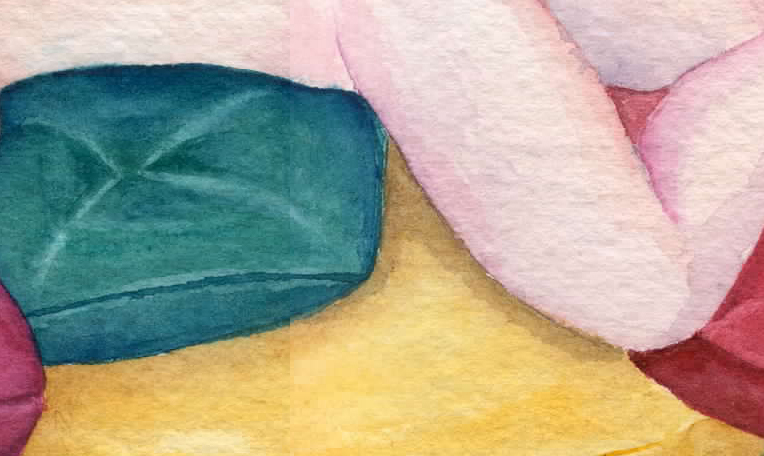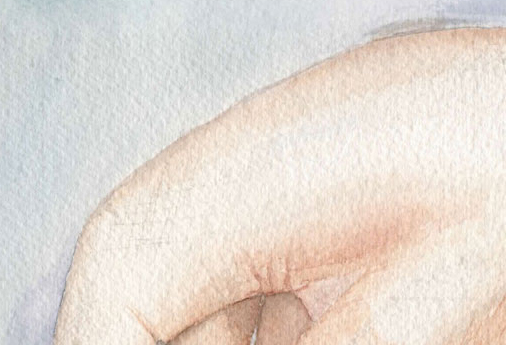 |
General Programs 290
Bryn Mawr and Haverford Colleges
Fall 2004
Knowing the Body:
Interdisciplinary Perspectives on Sex and Gender
http://serendipstudio.org/sci_cult/courses/knowbody/f04/
Anne Dalke (English House, BMC, adalke@brynmawr.edu)
Gus Stadler (Woodside Cottage, HC, gstadler@brynmawr.edu)
TTh 2:30-4, Chase 101
Images in this syllabus were created by
Sharon Burgmayer, Chemistry Department, Bryn Mawr College
|
gender, n. [a. OF. gen(d)re (F. genre) = Sp. and Pg. genero, It. genere, ad. L. gener- stem form of genus race, kind = Gr. , Skr. janas:OAryan *genes-, f. root - to produce; cf. KIN.]
1. Kind, sort, class; also, genus as opposed to species. the general gender: the common sort (of people). Obs.
2. In mod. (esp. feminist) use, a euphemism for the sex of a human being, often intended to emphasize the social and cultural, as opposed to the biological, distinctions between the sexes. Freq. attrib.
sex, n. [ad. L. sexus (u-stem), whence also F. sexe (12th c.), Sp., Pg. sexo, It. sesso. Latin had also a form secus neut. (indeclinable).]
1.Either of the two divisions of organic beings distinguished as male and female respectively; the males or the females (of a species, etc., esp. of the human race) viewed collectively. |  |
"sex is good for thinking....Levi-Strauss argues
that many people do not think in the manner of philosophers, by
manipulating abstractions. Instead,they think w/. . . concrete things from
everyday life . . . some things are especially good to think about.
They can be arranged in patterns, which bring out unsuspected
relationships and define unclear boundaries. Sex, I submit, is one of
them. As carnal knowledge works its way into cultural patterns, it
supplies endless material for thought, especially when it appears in
narratives--dirty jokes, male braggadocio, female gossip, bawdy
songs, and erotic novels. In all these forms, sex is not simply a
subject but also a tool used to pry the top off things and explore
their inner works. It does for ordinary people what logic does for
philosophers; it helps make sense of things."
Robert Darnton, "Sex for Thought." Sexualities in
History: A Reader
"There are times in life when the question of
knowing if one can think differently than one thinks, and perceive
differently than one sees, is absolutely necessary if one is to go on
looking and reflecting at all."
Michel Foucault, The Uses of Pleasure
Students taking this course
have the option of enrolling in a Praxis III internship, focused on an aspect
of current gender politics and linked to the Gender and Sexuality class.
Fieldsites will be selected based on student interest and might include the
Women's Law Project, Planned Parenthood, Center for Lesbian and Gay Civil
Rights, American Friends Service Committee, N.O.W, Women Organized Against
Rape, Kensington Welfare Rights Organization, or Project HOME. Anne Dalke
will be the Advisor for the Praxis III component.
The Praxis III internship will function as an additional course for an additional credit. As with other Praxis III courses, students in
these gender politics internships will work at a fieldsite for 8-10 hours per
week for 10 weeks during the semester. Contact Nell Anderson Nell Anderson,
PRAXIS Program Director (610 526-5031) for further information.
 | Week One
T, 8/31: Category-Making
What categories do each of us occupy?
Is that occupation willing or unwilling? Natural or imposed?
What do the categories "male" and "female," "man" and "woman,"
"gender and sexuality" signify to us?
What does the category "student" look and sound like to each of us?
What categories matter most to us,
when we discuss our own identities and those of others? |
Th, 9/2: Pedagogy: Witnessing and Testifying
Hannah Chang. "Thinking Aloud." English 308: The Feminist Difference in Literary Theory. Bryn Mawr College. Fall 2001.
bell hooks. "Engaged Pedagogy," "Confronting Class in the Classroom," and "Eros, Eroticism, and the Pedagogical Process." Teaching to Transgress: Education as the Practice of Freedom. New York: Routledge, 1994. 13-22, 177-189, 191-199.
Anne Dalke and Abby Reed. "'Shuddering without End': Class As Dinner Party." Teaching to Learn/Learning to Teach: Meditations on the Classroom. New York: Peter Lang, 2002. 69-93.
Week Two
Writing: The Personal and the Political
T, 9/7: Virginia Woolf. Chapter One. Three Guineas. 1938; rpt. New York: Harcourt, Brace Jovanovich, 1966.
Cherrie Moraga. "The Breakdown of the Bicultural Mind." Names We Call Home: Autobiography on Racial Identity. Becky Thompson and Sangeeta Tyagi, eds. New York & London: Routledge, 1996. 230-239.
Michael Warner. "Tongues Untied: Memoirs of a Pentecostal Boyhood." The Material Queer : A LesBiGay Cultural Studies Reader. Ed. Donald Morton. Boulder, Colorado: Westview Press, 1996. 39-45.
Th, 9/9: Chris Ware. Jimmy Corrigan: The Smartest Kid on Earth. New York: Pantheon, 2000. |
 |
Week Three
T, 9/14: Making the World Knowable
Michel Foucault. Preface and Forward. The Order of Things: An Archaeology of the Human Sciences. 1966; rpt. and trans.New York: Vintage, 1973. ix-xxiv.
George Lakoff and Mark Johnson. Philosophy in the Flesh: The Embodied Mind and Its Challenge to Western Thought. New York: Basic Books, 1999, 3-44.
 |
Th, 9/16: Making the Body Knowable I
Joan Wallach Scott. "Gender: A Useful Category of Historical Analysis." Feminism and History. Ed. Joan Wallach Scott. New York: Oxford University Press, 1996. 152-180.
Thomas Laqueur. "Of Language and the Flesh." Making Sex: Body and Gender from the Greeks to Freud. Cambridge: Harvard UP, 1990. 3-24. |
Week Four
T, 9/21: Making the Body Knowable II
Michel Foucault. "We 'Other Victorians'" and "The Repressive Hypothesis."The History of Sexuality, Volume I: An Introduction.Trans. Robert Hurley. New York: Vintage, 1980. 3-13, 17-49.
Gail Rubin. "Thinking Sex: Notes for a Radical Theory of the Politics of Sexuality." American Feminist Thought at Century's End : A Reader. Ed. Linda S. Kauffman Cambridge, Ma : Blackwell, 1993. 3-64.
Th, 9/23: Unsettling the Categories I--Turning the Inside Out
Guest Lecture by Carolyn Dinshaw, BMC '78, Professor of English and Director of Center for Gender and Sexuality, NYU, "LGBT Studies in a Transnational Frame" |
 |
Week Five: Unsettling the Categories II--Bodies in Motion/Performance
T, 9/28:
Diana Fuss. "Inside/Out." Critical Encounters: Reference and Responsibility in Deconstructive Writing. New Brunswick: Rutgers University Press, 1995. 233-240.
Samuel Delany. "Aversion/Perversion/Diversion." Longer Views: Extended Essays. Hanover, New Hampshire: University Press of New England, 1996. 119-143.
 |
Th, 9/30:
Paris Is Burning. Dir. Jennie Livingston. Videocassette. Miramax, 1992. 76 minutes.
Judith Butler. "Gender is Burning: Questions of Appropriation and Subversion." Bodies That Matter: On the Discursive Limits of "Sex." New York: Routledge, 1993. 121-140.
bell hooks. "Is Paris Burning?" Black Looks: Race and Representation. Boston: South End, 1992. 145-156.
Anne's Lecture Notes |
Week Six: Papers Posted and Performed
T, 10/5-Th, 10/7
What have you learned so far? What questions do you have now? How can you begin finding answers to them?
Write 5-pp. papers addressing these queries. Post to web. Present and discuss papers in class.
10/12-10/14: FALL BREAK
Weeks Eight and Nine: Literary Case Study
T, 10/26, Th 10/28, T 11/2
Jeffrey Eugenides, Middlesex. New York: Farrar, Straus and Giroux, 2002.
Th, 11/4
Middlesex, continued.
Intersex Society of North America. Hermaphrodites Speak! Videocassette. 1996? 34 minutes.
 |
Week Ten--Sex, Gender, and Politics: Marriage
T, 11/9:
Laura Kipnis. "Adultery." Critical Inquiry 24 (Winter 1998): 289-327.
"Can Marriage be Saved? A Forum." The Nation 279:1 July 5, 2004.
Th, 11/11:
Michael Warner. Chapter Two: "What's Wrong with Normal?" The Trouble with Normal: Sex, Politics and the Ethics of Queer Life. New York: Free Press, 1999. 41-80.
Andrew Sullivan. "What We Do" and "The Conservative Case." Same-Sex Marriage: Pro and Con, A Reader. Ed. Andrew Sullivan. New York: Vintage, 1997.
| |
Week Eleven--Sex, Gender, Politics: The Categories of War-Making
T, 11/16
Paul Grobstein. "I Believe ..."
Its Significance and Limitations for Individuals, Science, and Politics (2003)
Paul Grobstein. Language/Science/Politics 101:
War Is a Bad Metaphor (2003)
Gus Stadler. Info on the Iraq War: A Site Under Construction about a War Under Construction (2003)
Cynthia Enloe. Making Sense of the Wars in Afghanistan and Iraq in an American Election Year:
What Does a Feminist Curiosity Have to Offer? (2004)
Anne Dalke. Finding the Language of Peace (2004)
Virginia Woolf. Chapter Three. Three Guineas. 1938; rpt. New York: Harcourt, Brace Jovanovich, 1966.
Th, 11/18
Robert Scholes. "The Left Hand of Difference." Textual Power. New Haven: Yale University Press, 1985. 111-128.
Elaine Scarry. From "The Structure of War." The Body in Pain: The Making and Unmaking of the World. New York: Oxford University Press, 1987. 63-121, 137-139. | 
|
Week Twelve: Papers Posted and Performed
T, 11/23
Given what we have read and talked about so far: What aspect of current gender politics most interests you now? What is your understanding of its current state? How do you imagine an alternative to what now exists? What reading might be useful for you to do, in light of what you know, want to know and do? How might you act, or encourage others to act, to alter the current state of things?
By 5 p.m. Friday, Nov. 19, post a 100-word abstract of your paper on-line. Anne and Gus will group the postings into "books."
By 5 p.m. Monday, Nov. 22, write collaboratively with your group a 3-pp. introduction to your "book," and post it on-line. These will be the topic of our class discussion on Tuesday.
By 5 p.m. Wednesday, Nov. 24, write and post your own 5-pp. paper on-line, being sure to "situate" it within your "book."
Th, 11/25: THANKSGIVING HOLIDAY
 | Week Thirteen: Category-Making/War-Making II
T, 11/30
Chris Hedges. Introduction. Chapter 7: "Eros and Thanatos." War is a Force That Gives Us Meaning. New York: Public Affairs, 2002. 1-17, 157-171.
Cynthia Enloe. Preface and Conclusion. Maneuvers: The International Politics of Militarizing Women's Lives. Berkeley: University of California Press, 2000. ix-xix, 288-300.
Table of Contents and Introduction. After Shock: September 11, 2001. Global Feminist Perspectives. Eds. Susan Hawthorne and Bronwyn Winter. Vancouver: Raincoast Books, 2003.
Th: 12/2
Barbara Ehrenreich. "What Abu Ghraib Taught Me." AlterNet. May 20, 2004.
Lucina Marshall. "The Misogynist Undercurrents of Abu Ghraib." May 18, 2004.
Luc Sante, "Tourists and Torturers." Interactivist Info Exchange. May 12, 2004.
Susan Sontag. "Regarding the Torture of Others." New York Times. May 23, 2004.
Week Fourteen: Working On/Working Out Our Final Projects
T, 12/7: Small group work on the introductions to the books
Th, 12/9: Panel presentations of the book-ideas to the class
|

| Course Home Page
|Course Syllabus
| Feminist and Gender Studies Program
| Other Undergraduate Courses on Serendip
|Serendip Home |
Send us your comments at Serendip
© by Serendip 1994-2004 - Last Modified:
Monday, 25-Oct-2004 16:35:47 EDT












